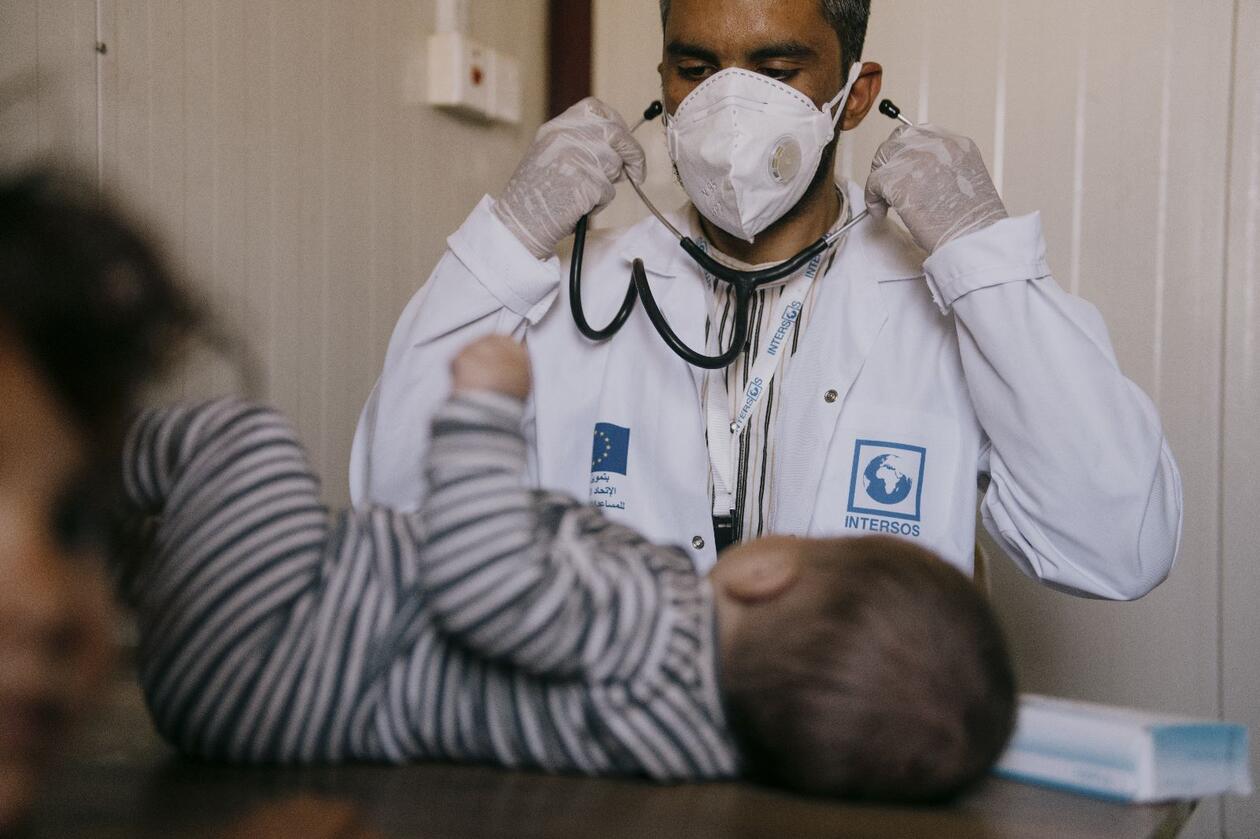Building capacity in preparedness for migrants through international dialogues
The Pandemic Centre participated in a Round table discussion: “Strengthening the capacity and ensuring the protection of vulnerable migrants, asylum seekers and refugees” organized by INTERSOS Hellas

Main content
As part as our collaboration for capacity building on preparedness, the Pandemic Centre was in Athens two days in December. During the first day, Esperanza Diaz and Prabhjot Kour participated in a Round table discussion: “Strengthening the capacity and ensuring the protection of vulnerable migrants, asylum seekers and refugees” organized by INTERSOS Hellas in partnership with Pandemic Centre, University of Bergen through a project Funded by: ΣΟΛ Crowe, Human Rights 360.
Representatives from civil society organizations (NGOs), international organizations, academia, healthcare workers and funding agencies, attended this discussion focusing on lessons learnt for the pandemics to enhance support to asylum seekers and refugees during health crises. Participants highlighted the critical need for collaborative efforts among stakeholders, including academia (scientific community), healthcare sector, governmental bodies, NGOs, and international organizations, for effective responses and sustainable solutions.
Participants from various civil society organizations(such as Greek Forum of Migrants, International Red Cross, Babel working with mental health, Network for Children’s Rights, Doctors Without Borders, among others) shared their experiences of working within the field with migrants and highlighted the amplified vulnerabilities faced by migrant communities due to the COVID-19 pandemic, emphasizing mental health risks, economic hardships, arising difficulties concerning malnutrition and food insecurity following the pandemic, and exacerbated social challenges. They explicitly emphasized that the need to protect these groups is essential for the overall protection and well-being of society. These discussions further centered on the necessity of capacity building initiatives aimed at empowering communities and institutions to better address the specific needs of migrants in vulnerable situations.
Further, discussions surrounded the topics of conditions in different refugee camps in Greece, access to essential services such as healthcare, labor, and education. Discussions also touched upon the challenges and imperatives of ensuring equitable access to COVID-19 vaccines for migrant populations, underscoring the significance of global solidarity and fair distribution. Participants deliberated on the necessity of adaptive policy frameworks that account for the unique vulnerabilities and needs of migrants during and post-pandemic, aiming for inclusive and resilient responses. In addition, there was a call for robust monitoring and evaluation mechanisms to assess the effectiveness of interventions and policies, allowing for adjustments and improvements over time.
Overall, the discussion aimed to catalyze action-oriented strategies and partnerships between civil societies, authorities, and academia to bolster the protection and capacity-building efforts for these groups in a sustainable way
This day was followed by visits to key partners in the field: the Network for Children’s Rights, the Greek Forum of Migrants and the Babel Centre - working with mental health. The Pandemic Centre is thankful for the insight gained through this visit and look forward to sustaining this collaboration.
